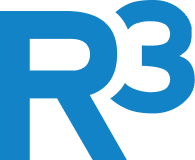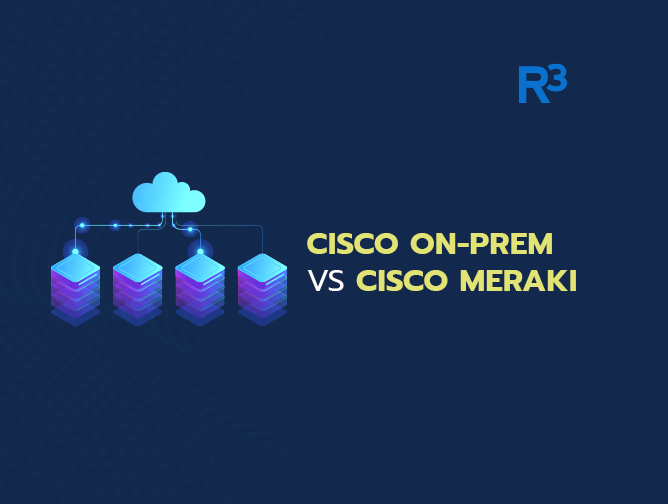Cisco on-premises and Cisco Meraki are two networking solutions commonly used by businesses. Cisco is a well-known brand in the networking industry, offering a wide range of on-premises networking products and services. On the other hand, Cisco Meraki is a cloud-based networking solution that provides advanced features and centralized management capabilities.
In this blog post, we will discuss the differences between Cisco on-premises and Cisco Meraki, the pros and cons of each, and why a business would need either one of them.
What is Cisco on-premises?
Cisco on-premises refers to traditional networking solutions provided by Cisco that require physical hardware and local infrastructure. These solutions include switches, routers, firewalls, IP phones, video conferencing systems, and wireless access points. Cisco has been a dominant player in the networking industry for several decades, providing reliable and high-quality on-premises networking solutions.
Pros of Cisco on-premises
- Customization and control: Cisco on-premises solutions offer a high level of customization and control over network configuration, allowing businesses to tailor their network infrastructure to meet specific requirements.
- Robust and reliable: Cisco on-premises products are known for their robustness and reliability, making them suitable for mission-critical applications where high availability and uptime are crucial.
- Scalability: Cisco on-premises solutions can be easily scaled to accommodate growing business needs, allowing for the addition of more devices and expanding network capacity as required.
- Advanced features: Cisco on-premises products come equipped with advanced features such as Quality of Service (QoS), Virtual LANs (VLANs), and routing protocols, enabling businesses to optimize network performance and implement complex network configurations.
Cons of Cisco on-premises
- Complex setup and management: Setting up and configuring Cisco on-premises solutions can be complex and time-consuming, requiring technical expertise and an in-house IT team to handle installation, maintenance, and ongoing management.
- Higher initial cost: Cisco on-premises solutions typically involve a higher upfront cost, including the purchase of hardware and licensing fees, which may pose a financial challenge for small and medium-sized businesses with limited budgets.
What is Cisco Meraki?
Cisco Meraki is a cloud-based networking solution that provides advanced features and centralized management capabilities. It includes cloud-managed switches, routers, firewalls, wireless access points, security cameras, and other network devices. The cloud-based approach simplifies network management, offering businesses an intuitive web-based dashboard to monitor and control their network from anywhere.
Pros of Cisco Meraki
- Cloud-based management: Cisco Meraki’s cloud-based solution allows businesses to manage their network infrastructure through a web-based dashboard, providing centralized control and access from anywhere with an internet connection.
- Ease of deployment and management: Cisco Meraki products are designed for easy deployment and intuitive management, making them suitable for businesses without an in-house IT team or with limited technical expertise.
- Advanced security features: Cisco Meraki offers a comprehensive set of security features, including built-in intrusion detection and prevention, content filtering, and antivirus protection, enhancing network security and protecting against emerging threats.
- Scalability and flexibility: Cisco Meraki solutions are highly scalable, allowing businesses to add devices and expand their network seamlessly as their needs grow. It also offers flexibility in terms of device management and network customization.
Cons of Cisco Meraki
- Dependence on internet connectivity: Since Cisco Meraki is a cloud-based solution, it requires a reliable internet connection to access the web-based dashboard and manage the network. Any disruption in the internet connectivity may impact network management and control.
- Limited customization options: While Cisco Meraki provides a wide range of features and configurations, it may not offer the same level of customization as on-premises solutions, limiting some advanced configuration options that certain businesses may require.
Why a business would need either Cisco on-premises or Cisco Meraki?
The choice between Cisco on-premises and Cisco Meraki depends on various factors, including the business’s needs, resources, and IT expertise. Here are scenarios where a business would need either Cisco on-premises or Cisco Meraki:
When to use Cisco on-premises
- Large enterprise with complex requirements: Cisco on-premises solutions are well-suited for large enterprises with complex networking needs, providing extensive customization and control over network infrastructure.
- High-performance applications: Businesses requiring high-performance applications that demand low latency and high throughput can benefit from the advanced features and robustness of Cisco on-premises products.
- In-house IT expertise: Organizations with an in-house IT team and technical expertise can leverage Cisco on-premises solutions to design and implement tailored network configurations and optimize network performance.
- Specific compliance requirements: Certain industries or businesses with specific compliance requirements may prefer on-premises solutions to maintain complete control over their network infrastructure and data management.
When to use Cisco Meraki
- Small to medium-sized businesses: Cisco Meraki is an ideal solution for small to medium-sized businesses that require a simplified, cloud-managed networking solution without the need for extensive technical expertise or an in-house IT team.
- Remote management and multiple locations: Businesses with remote employees or multiple locations can benefit from the centralized management capabilities of Cisco Meraki, allowing for easy network monitoring, configuration, and troubleshooting from a single web-based dashboard.
- Streamlined deployment and ease of use: Cisco Meraki products are designed for easy deployment and intuitive management, making them suitable for businesses without dedicated IT staff or limited technical resources.
- Enhanced network security: Cisco Meraki offers built-in security features that can help businesses protect their network from evolving threats, making it particularly appealing for organizations that prioritize network security.
Both Cisco on-premises and Cisco Meraki offer unique advantages and cater to different business requirements. Cisco on-premises solutions provide customization, control, and advanced features suitable for large enterprises with complex networking needs and ample IT resources. On the other hand, Cisco Meraki offers simplified deployment, centralized cloud-based management, and advanced security features, making it an ideal choice for small to medium-sized businesses with limited IT resources and remote management needs.
Businesses should carefully evaluate their networking needs, budget, IT resources, and desired level of control to determine whether Cisco on-premises or Cisco Meraki is the right fit. Each solution has its strengths and weaknesses, and choosing the appropriate one will ultimately depend on the specific requirements and priorities of the business.


